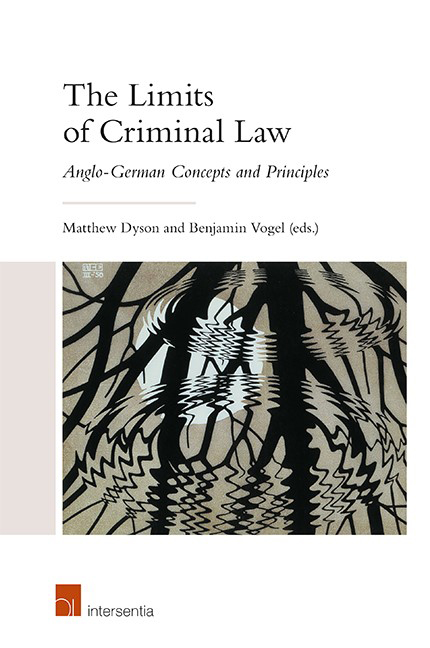Book contents
- Frontmatter
- Preface
- Contents
- List of Cases
- List of Abbreviations
- List of Contributors
- Chapter 1 Introduction
- PART I CORE PRINCIPLES OF CRIMINAL LAW
- PART II CRIME AND TORT
- PART III CRIME AND MEDICAL
- PART IV CRIME AND REGULATION
- PART V ADMINISTRATIVE SANCTIONS
- PART VI ALTERNATIVE ENFORCEMENT
- PART VII COUNTER-TERRORISM
- PART VIII CRIME AND INTELLIGENCE
- PART IX CONCLUSION
- Index
- About the Editors
Chapter 2 - Core Principles of English Criminal Law
Published online by Cambridge University Press: 11 February 2021
- Frontmatter
- Preface
- Contents
- List of Cases
- List of Abbreviations
- List of Contributors
- Chapter 1 Introduction
- PART I CORE PRINCIPLES OF CRIMINAL LAW
- PART II CRIME AND TORT
- PART III CRIME AND MEDICAL
- PART IV CRIME AND REGULATION
- PART V ADMINISTRATIVE SANCTIONS
- PART VI ALTERNATIVE ENFORCEMENT
- PART VII COUNTER-TERRORISM
- PART VIII CRIME AND INTELLIGENCE
- PART IX CONCLUSION
- Index
- About the Editors
Summary
This chapter will explore the core principles of English criminal law. In particular, it will focus on those principles that set the minimum conditions and the outer limits of criminal liability. Most of these conditions and limits, as will become clearer below, operate as presumptions, rather than as side-constraints, on criminalisation. The chapter begins with a brief discussion of the historical and institutional background to contemporary English criminal law, before moving on to consider the core principles in both the substantive law and the law of criminal procedure. It concludes with some observations about the general approach of English law to the core principles.
BACKGROUND
In understanding the nature of the core principles of English criminal law it is useful to bear in mind some background context.
SOURCES
The current law is the product of a varied assortment of case law and legislation over a long period of time. There is no criminal code in English law, nor any piece of legislation systematically setting out the general elements of criminal liability. Nor is there a Crimes Act providing an orderly catalogue of major crimes against the person and against property. Attempts to consolidate or codify the criminal law in the nineteenth and twentieth centuries were unsuccessful. The most recent and comprehensive attempt – a draft Criminal Code endorsed by the Law Commission in 1989 – was not enacted, and since 2008 the Law Commission, which is charged with the task of law reform, has shifted its emphasis in criminal law reform from the project of codification to the simplification of discrete parts of the criminal law.
Instead, the general elements of criminal law have been developed in a piecemeal manner over many centuries, particularly in the nineteenth and twentieth centuries, primarily by the judiciary. Consequently, the rationales for the elements tend to be piecemeal and often pragmatic, rather than grounded in an overriding conception of the nature of the criminal law or the relationship between the citizen and the state. As a result of these aspects of English law, whilst there are many well-established concepts and principles in English criminal law, there are some whose existence or content is unclear.
RIGHTS PROTECTIONS
The protection of basic rights in English law rests on a variety of legal sources, rather than on fundamental constitutional provisions.
- Type
- Chapter
- Information
- The Limits of Criminal LawAnglo-German Concepts and Principles, pp. 9 - 38Publisher: IntersentiaPrint publication year: 2020

